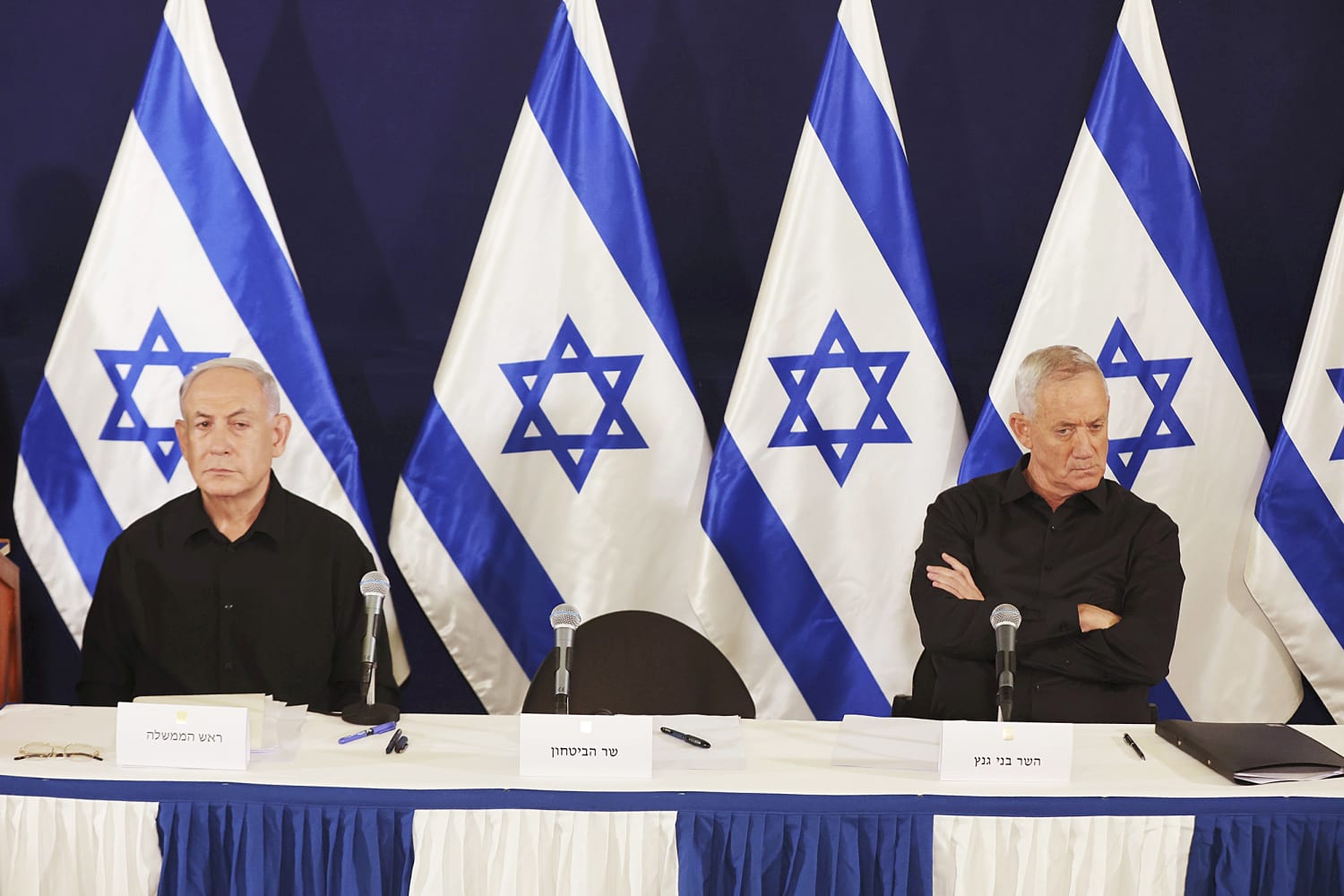TEL AVIV — Israeli Prime Minister Benjamin Netanyahu has dissolved the six-member war Cabinet, an Israeli official said Monday, in a widely expected move that came after one of his key rivals, the centrist former general Benny Gantz, quit the emergency government.
The prime minister informed ministers that he will hold sensitive consultations in a smaller forum dubbed, “the kitchen cabinet,” the official said.
Netnayhu had faced demands from ultranationalist ministers in his coalition including Finance Minister Bezalel Smotrich and National Security Minister Itamar Ben-Gvir, to be included in the war Cabinet, a move which would have intensified strains with international partners including the United States.
The forum was formed after Gantz joined Netanyahu in a national unity government at the start of the war after Hamas’ Oct. 7 attacks on Israel. It also included Gantz’s partner Gadi Eisenkot and Aryeh Deri, head of the religious party Shas, as observers.
Gantz and Eisenkot both left the government last week, over what they said was Netanyahu’s failure to form a strategy for the war, now in its eighth month.
“I think a lot of this is domestic politics and jockeying for potential upcoming elections but I also feel that Netanyahu is feeling a bit stronger than he did a little while ago,” Paul Salem, the vice president for international engagement at the Washington-based Middle East Institute think tank.
Netanyahu, who was widely blamed for the security failures that allowed Hamas’ Oct. 7 attacks to take place, was “making political hay” from his spat with President Joe Biden over elements of Israel’s conduct during the war “and making out like he’s standing up for what the Israelis want and refusing to succumb to pressure,” Salem said.
That has “helped him politically,” he added.
With recent polling showing Netanyahu’s right wing Likud party making gains on Gantz’s National Unity Party, Salem said the former army general and defense minister in the last government had faced pressure from his own side to act.
More than 37,000 people have been killed in Gaza, according to local health officials, since Israel launched its offensive in the enclave following Hamas’ Oct. 7 attacks, in which some 1,200 people were killed and around 250 others were taken hostage, according to Israeli officials.
On Monday Netanyahu met with Amos Hochstein, the White House official tasked with trying to ease tensions on the Israel-Lebanon border.
Along with France, the U.S. is working on a negotiated settlement to the hostilities along Lebanon’s southern border.
Neither Netanyahu or Hochstein commented after the meeting.
It came a day after the Israeli military warned that intensified cross-border fire from the Iran-backed Hezbollah militant group could trigger serious escalation in the conflict across its northern border.
“Hezbollah’s increasing aggression is bringing us to the brink of what could be a wider escalation, one that could have devastating consequences for Lebanon and the entire region,” Israeli military spokesperson Rear Adm. Daniel Hagari said in a video statement in English.
Around 60,000 people have been evacuated from more than 40 communities in northern Israel, according to the International Organization for Migration. On the Lebanese side, the fighting has displaced around 74,500 people.
Hezbollah, which has been exchanging fire with the Israeli military in parallel with the war with Hamas in Gaza, last week launched the largest volleys of rockets and drones in eight months.
However, Sunday saw a marked drop in Hezbollah fire, while the Israeli military said that it had carried out several air strikes against the group in southern Lebanon.
“Israel will take the necessary measures to protect its civilians — until security along our border with Lebanon is restored,” Hagari said.
Hezbollah has said it will not halt fire unless Israel stops its offensive in Gaza.
Raf Sanchez reported from Tel Aviv and Henry Austin from London.
#Netanyahu #disbands #war #Cabinet,
#Netanyahu #disbands #war #Cabinet
